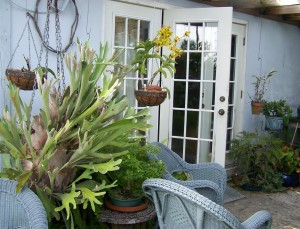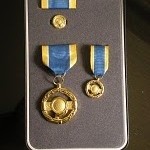The first time I saw Dolores Norley was at an annual meeting of ARC in Daytona.
 I was impressed by how friendly she was and by her small frame and by her extremely large pocketbook. I’d been told for several years that this woman was the best lawyer specializing in disability law in the US and perhaps the world.
I was impressed by how friendly she was and by her small frame and by her extremely large pocketbook. I’d been told for several years that this woman was the best lawyer specializing in disability law in the US and perhaps the world.
We had brought our Special Gathering choir to sing at the community event. As the choir director, I was included in the invitation. Special Gathering is a ministry within the mentally challenged community. We do classic ministry, discipleship and evangelism. The purpose of our choir is to educate the local church to the spiritual needs of people who are developmentally disabled. Special Gathering was a fledgling effort in Daytona at that time. Our desire that evening was to help educate the professional community and parents to the ministry.
I tried to NOT be impressed standing before Ms. Norley but I couldn’t help myself. However, it wasn’t her legaleeze that made a lasting impression but the woman. Here was this tiny blond frame standing before me, chatting as though we were long, lost friends. Obviously, she felt sorry for me because I was totally at a loss for words. Therefore, she was comfortably picking up the conversational slack.
It was more than a year later that Special Gathering received an annual newsletter from her. You know it was the Merry Christmas kind. My name (how could she even remember my name?) was included in the greeting. When I began a Special Gathering program in DeLand several years later, her son, Greg, was one of our first members. Again, she treated me as though I was not only her equal but one of her best friends. From those comfortable days, we did become good friends.
 We had supper together. We shared a love for gardening and soup and her garden and soup were the best. She gave me the key to her house and insisted that I drop by her home whenever I needed a place to stop and do my work or just recoup. She invited me to attend conferences with her and to share in the animated conversation that often engulfed her front porch.
We had supper together. We shared a love for gardening and soup and her garden and soup were the best. She gave me the key to her house and insisted that I drop by her home whenever I needed a place to stop and do my work or just recoup. She invited me to attend conferences with her and to share in the animated conversation that often engulfed her front porch.
It seemed that someone was always at her home. They were usually people stopping by to share a few hours, a few days or a few weeks. She was generous with her stuff. But most of all, she was generous with herself.
She did not often talk about legal matter but she often spoke about her personal struggles and joys. In one of our last conversations, a friend of her for more than 50 years was visiting. They were planning a peace march to protest the Iraqi war. Laughing but serious, she admitted that one of the great disappointments of her life was that with all the peace marches that she had attended, she had never been arrested. During the years that I knew her, I witnessed the decline of her health and the eventual blindness that claimed her eyesight.
After five years of working in Volusia, we hired another person to take my place in DeLand. He found the same loving friend in Dolores that had captured my heart. At times, I wish I’d learned more about disability law from this wonderful mite of a woman. But the lesson I learned was immeasurable. I learned about being a friend. She taught me the joy of taking the risk to love people instantly and include them–and their warts–in my life from the moment I meet them.
Dolores didn’t ignore my warts. She often challenged me at board meetings and on her front porch. “I can’t blindly agree to that,” she would say. “Why would you do that?” she would inquire in the privacy of her home. Somehow, I knew that my answer–no matter how lame–would be met without her rejection of me, as a person.
Dolores has been dead for several years. I still miss stopping by her home and finding her in a dimly lit front room, sitting with a bright lamp struggling to decipher an article or letter. I miss her soup. But most of all I miss her friendship.
Do you have a friend, like Dolores? Can we all aim to be that kind of person? Should we even try to be that kind of person? Is the world different now and would this kind of friendship be too risky? Or would we all benefit from this type of acceptance?

